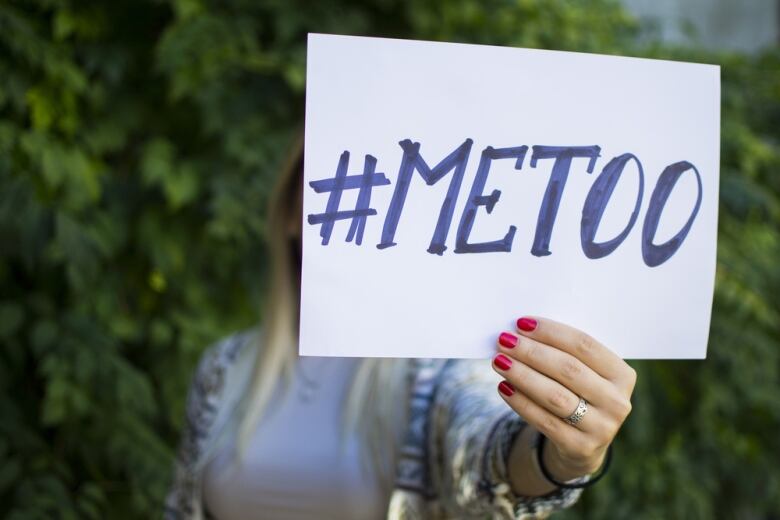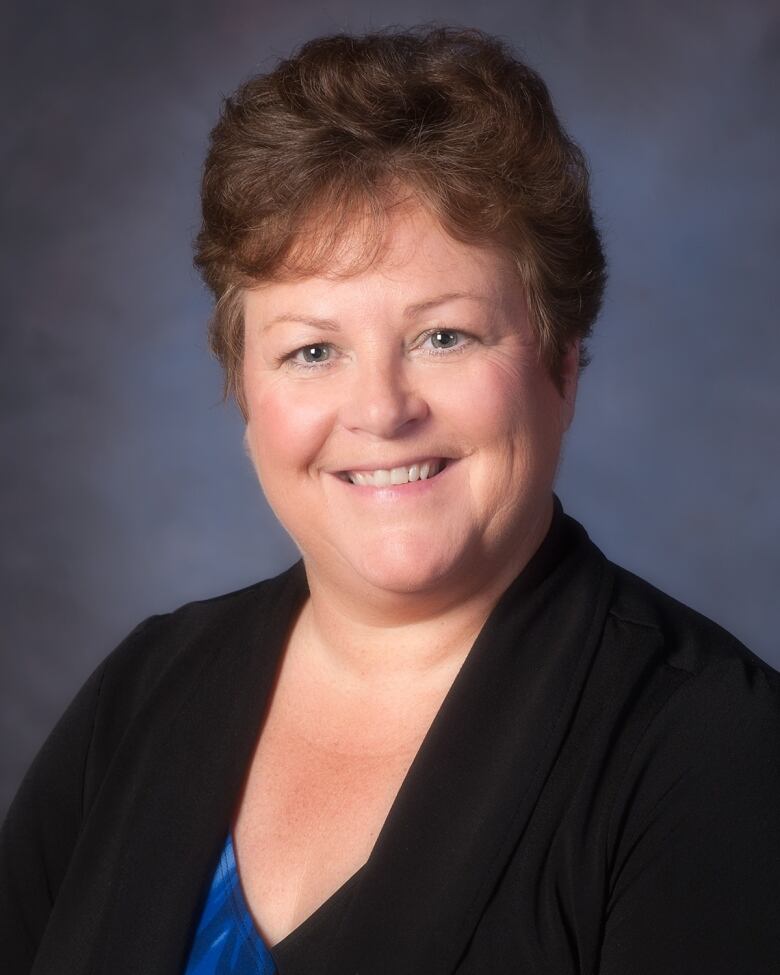What to do if you're being sexually harassed at work on P.E.I.
'I think it's time people got educated in this area and understood that this is just not acceptable behaviour'

The #MeToocampaign that went viral this week had a lot of Islanders talking about their experiences of being sexually assaulted and harassed and for some, pointing out a lack of support, knowledge and understanding in their workplaces about what to do if the harassment happens at work.
- 'A way of speaking up for yourself': #MeToo campaign gains traction on P.E.I.
- Island Morning Me Too Panel
Here's what you can do ifyou believe you've been or are being sexually harassed and yes, the onus will be on you, the employee, to speak up.
It is a step to call us, but perhaps if more people did then perhaps it wouldn't seem like such a scary step. Brenda Picard
"If a person is being sexually harassed at work, they should first of all especially if it's safe let the person know that the behaviour is unwelcome, and they should tell the person to stop," isthe first step suggested by Brenda Picard, the executive director of P.E.I.'s Human Rights Commission.
P.E.I.'s law directs employees who believe they're being harassed to call the commission as sexual harassment falls under discrimination on the basis of sex.
Often, that will stop the behaviour right away Picard says people may not be aware what they're saying or doing is offensive.
Jokes, innuendo, touching
Just what are we talking about? P.E.I.'s Employment Standards Act defines sexual harassment as any conduct, comment, gesture or contact of a sexual nature that is likely to cause offense or humiliation to any employee or that might, on reasonable grounds, be perceived by that employee as placing a condition of a sexual nature on employment or on any opportunity for training or promotion.
"Repetitive behaviour the jokes, the innuendo, the advances, the touching, that kind of thing those are things we do see in complaints that are still happening in P.E.I." says Picard.

The Human Rights Commission receives one or two calls a week from people wondering if they have grounds to complain about discrimination on the basis of sex, which alsoincludes gender-based discrimination.
Over the last four years the commission has had an average of eight full-blown complaints a year on the ground of sex in employment which to Picard seems low.
"That doesn't mean it's not happening it just means either people are resolving it or people are moving on," Picard says.
"And we have a culture where we've so often just taught people, 'That's just part of the job, don't worry about it, you've gotta go along' and it's not acceptable," Picard says. "It's surprising I think in today's day and age that we're still getting any complaints on the basis of sex. But we do."
'Somewhere employees can see it'
According to the P.E.I. government's guide to employment standards, employers are supposed to have a sexual harassment policy posted on their premisesthat can be seen by all employees.

Actually, according to the letter of the law, employers do not need to post the policy they just need to make sure all employees are aware of it.
If workplaces don't have their own policy, they can borrow ageneric one from the government.
"An employee should ask 'Where is that policy?'" says Picard. "They really shouldn't have to ask, because the policy is supposed to be posted. So it should be posted somewhere the employees can see it."
There are no penalties for not making the policy available, and it is only checked on if there is a complaint to government,saysLabour and Industrial Relations director Constance Robinson.
As a result of CBC's inquiry, the government's Employment Standards and You poster is being updated to include information about sexual harassment,Robinson saidFriday.
'Still an issue'
Are employees aware of their rights?
"I think that it's still an issue, I think a lot of people don't understand what their obligations are on both sides, employees, employers, customers," says Picard. "I think it's time people got educated in this area and understood that this is just not acceptable behaviour."

If an initial complaint doesn't fix things, Picard says, complain to your supervisor or human resources department she stressesit's the employer's responsibility to discipline anyone who sexually harasses an employee.
What if it's a customer who's doing the harassing?
"I think the first step is for the employer to adress it with the customer and say this behaviour is unwelcome and it's unwanted and you're not to continue along with it," advises Picard.
"But if the employer said to the employee, 'You're going to have to put up with it because I'm not prepared to get rid of that customer,' I think they may find themselves in trouble with us."
'Scary step'
Victims can call the Human Rights Commission at (902) 368-4180 or toll free at 1-800-237-5031.
It's not a defense to come and say "Well I didn't mean any harm by it." Brenda Picard
"They should feel at ease to call us very early on in the process sexual harassment is considered sexual discrimination under the Human Rights Act," says Picard, adding the employee should take notes on what's happening. A complaint can be laid within a year of the alleged harassment.
Calling a government body to complain about your boss, who controls your income, might seem daunting to many employees.
Remember, your boss is not allowed to fire you for complaining, Picard says that's against the law.
"It is a step to call us, but perhaps if more people did then perhaps it wouldn't seem like such a scary step," Picard says.
'Not a defense'
The commission will sit down and determine if what's happening to an employee fits the Human Rights Act's definition of discrimination on the basis of sex. They may call the person's employer and find out what they've been doing about it, Picard said, and launch an investigation.
There's a variety of ways complaints are resolved, Picard says. Some involve monetary settlement, sometimes a complaint may be withdrawn, and sometimes the employer "steps up" Picard says, beefing up their sexual harassment policy or receiving an education session.
And ignorance is no excuse, Picard stresses.
"It's not a defense to come and say 'Well I didn't mean any harm by it.' That's not the point the point is the impact it had on the other person," she says.
'Hearing about it more often'
Employers may also call in private companies like human resources and labour relations consulting firm to investigate.

"I would say that some employers are themselves not sure what to do," saysPatsy MacLean, a consultant and partner at HR Atlantic. She's seen an increase in investigations into all kinds of harassment including sexual harassment.
MacLean has investigated a range of complaints on P.E.I., she says, fromsexualized jokes andinnuendoto "a differentlevel" where there could be a condition of employment placed on the victim.
"That is a good thing, if we are actually hearing about it more often," MacLean believes. "The more we can do to ensure people are aware I think we all have work to do in that area."
'Can't condone it'
"You can't condone it," saysKevin Murphy, who employs at least 500 people at his restaurants and hotels including The Gahan House, Sims Steakhouse and the P.E.I. Brewing Company.
Sexual harassment is included in Murphy's policy manual, which all new employees must read and sign upon being hired, he says.
He realized the importance of having a clear sexual harassment policy, he says, after an incident more than a decade ago at one of his restaurants in which kitchen staff frequently made jokes of a sexual nature that made one staffer uncomfortable. The person complained to management and the behaviour stopped, Murphy said.
Murphy thinks sexual harassment in the service industry is much less prevalent than it used to be, he adds.
"In the last few years, employees are much more educated as well, much more in tune with their rights so we make sure we're educated," adds Murphy Hospitality Grouphuman resources manager Rachel Vidito. "We try to be ahead of the game."

"The sexual harassment issue has very much been brought into the spotlight over the past week with the #MeToo movement," says Steve Barber at Red Island Hospitality, which owns Hunters Ale House, John Brown's on Richmond Street and the Charlottetown Beer Garden.
"We applaud the movement and do have a sexual harassment policy posted in our staff area here at Hunter's."
'There is no charge for sexual harassment"
If employers or employees want more information on their obligations and rights under provincial laws, there's an easy-to-read guide online.
P.E.I.'s Employment Standards Office received 8,000 inquiries last year. Their lone investigator looked into 121 formal complaints mostly about things like pay on holidays and overtime, says Robinson.
The office isavailable to give presentations on rights and obligations under the Labour Standards Act its toll-free number is 1-800-333-4362.
The Human Rights Commission also offers education, Picard says.

If the complaint is more serious, P.E.I.'s Rape and Sexual Assault Crisis Centre provides counselling to those who have been sexually assaulted call 1-866-566-1864.
Victim Servicesunder P.E.I.'s Department of Justice is also available to help anyone who's been harassed or assaulted navigate the system, said manager Susan Maynard.
While "there is no charge for sexual harassment," in law, Maynard said a staffer would sit down with the victim to discuss how serious the harassment is it could be criminal harassment, which could include repeated communication, watching or following, or it could be a sex offense under Canada's criminal code, including sexual assault.
Victim Services might also refer victims to the aforementioned P.E.I. Human Rights Commission process.
- MORE P.E.I. NEWS |UPEI working to improve sexual assault policy that earned it D+
- MORE P.E.I. NEWS|Check out Charlottetown's first solar phone-charging station












_(720p).jpg)


 OFFICIAL HD MUSIC VIDEO.jpg)
.jpg)



























































































